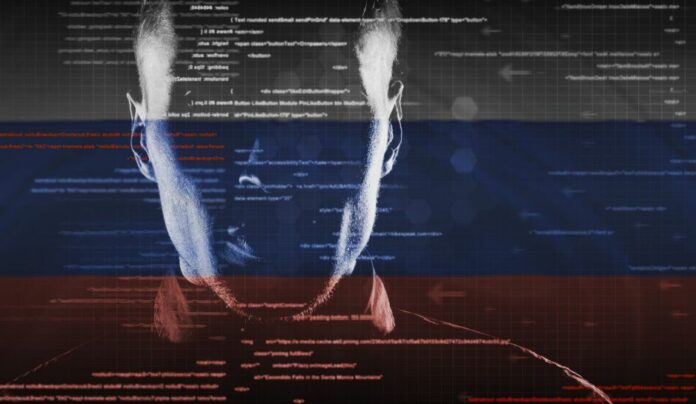- Russia is contemplating necessary on-line age verification
- Internet customers would want to show their age to entry 18+ content material
- The transfer echoes comparable legal guidelines enforced within the UK and the US
Mandatory age verification is arriving in all places, with Russian lawmakers turning into the newest to think about age-gating on-line content material.
On October 21, a member of the Russian Civic Chamber, Yevgeny Masharov, proposed a plan to pressure all web customers to show their age. This would contain utilizing their passport information, driver’s license, or financial institution data to entry on-line content material meant for an 18+ viewers.
Like comparable legal guidelines enforced throughout Western nations, the transfer stems from a bid to defend minors from dangerous content material. Yet, specialists have lengthy argued that age verification may negatively affect individuals’s proper to free speech, entry to data, privateness, and digital safety.
For Russian lawmakers, nonetheless, the chance is actually definitely worth the bother – and adult-only content material appears to be solely the start.
In one other announcement made to Gazeta.Ru, the Deputy Chairman of the State Duma Committee on Information Policy, Information Technology, and Communications, Andrei Svintsov, additionally mentioned that Russians are set to lose their anonymity on the web throughout the subsequent three years, 5 at most.
“That is, each web consumer will register with some specialised identifier that may confirm their age and different essential entry rights,” mentioned Svintsov. “I believe the time has come to introduce one thing just like purge all social networks and platforms of those bots and the seemingly limitless quantity of generated content material.”
Russians to lose their web anonymity – what’s at stake
When necessary age verification landed within the UK and the US, it was met with a fierce debate.
On one hand, each residents and safety specialists had been involved that sharing their most delicate private data may compromise their privateness, making them susceptible to information leaks and identification theft.
Digital rights campaigners additionally warned {that a} obscure definition of “lawful however dangerous content material to minors” will result in larger on-line censorship, which may hinder individuals’s proper to free speech and entry to data.
In a rustic like Russia, the place web censorship is among the many strictest worldwide, such a danger is even stronger. That’s very true contemplating that, as Masharov defined to RIA Novosti, adult-only content material may also embrace movies from bloggers that includes foul language, scenes of violence, and propaganda of delinquent conduct.
Talking to TechRadar, Russian cyberlawyer and skilled at RKS Global, Sarkis Darbinyan, explains that Russia has lengthy used the argument of defending kids as a pretext for implementing extra rigorous practices of data and privateness management.
“The web censorship in Russia began in 2012 with the primary regulation on defending kids from dangerous data. This primarily opened a Pandora’s field, finally resulting in an unimaginable growth of the checklist of grounds for blocking web websites and the institution of whole state on-line censorship,” Darbinyan mentioned.
The Kremlin started its quest to deanonymize the info of each consumer eight years after the adoption of Putin’s Strategy for the Development of the Information Society till 2030, Darbinyan explains.
“And now, with the instance of Western nations which have taken this harmful and false path, Russian authorities are looking for to fully shut the loop of legal guidelines that already impose quite a few restrictions on non-public and nameless communication on-line,” Darbinyan added.
Can a VPN assist?
Motivated by their considerations, individuals within the UK and the US have flocked to one of the best VPN apps as a solution to bypass necessary age checks – pushing lawmakers in Michigan and Wisconsin to think about VPN blocking obligations of their age verification proposals.
The Kremlin is already in an ongoing battle to crack down on VPN utilization throughout the nation, with a regulation handed in March 2024 that even criminalizes the unfold of details about how one can circumvent web restrictions.
While their use is not fully banned, ever-sophisticated VPN blocking methods imply that many providers could get blocked or throttled.
Now, a regulation in opposition to ‘extremist’ content material search handed final July additionally makes utilizing a VPN to entry this content material against the law as an aggravating issue.
“For individuals within the West, VPNs are a short-term escape from the regulation. For individuals in Russia, VPNs are a real software for civil protest,” mentioned Darbinyan, mentioning that Roskomnadzor obtained about $1 billion at first of the 12 months to struggle VPNs.
It is then solely honest to imagine that an age-gated and de-anonymized web in Russia will come hand in hand with a recent new crackdown on circumvention instruments.
Yet, “This warfare has already begun,” mentioned Darbinyan. “A separate initiative to confirm age will not make issues worse. Russian censorship has change into very aggressive even with out this.”
- “An monumental surveillance potential” – specialists have critical considerations about Russia’s new WhatsApp rival
- “A privateness tradeoff” – privateness specialists slam new UK age verification checks
- ID, please – contained in the age verification “mess” splintering the US web

